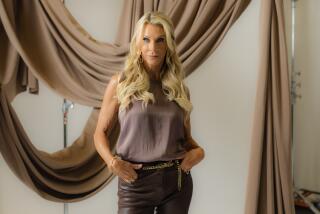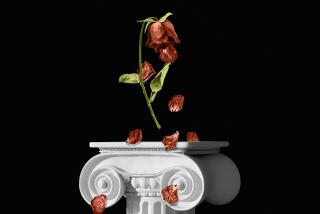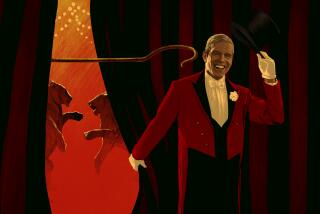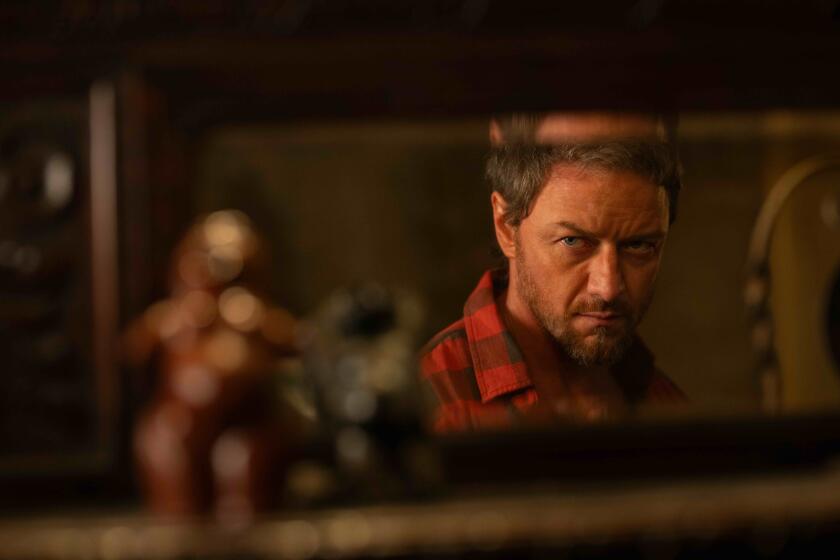Alcohol, sex and consent: Add TV cameras and the ‘Bachelor in Paradise’ party gets complicated
Before the cameras even started rolling, Chad Johnson was drunk. Not tipsy; hammered. By the time production on “Bachelor in Paradise” kicked off at 11 a.m. in Sayulita, Mexico, the reality star had already taken seven shots of Jack Daniel’s whiskey and downed a whole bottle of wine.
Because, he figured: Why not? He’d agreed to go on the third season of the spinoff of ABC’s “The Bachelor” because it seemed like a paid vacation, replete with bikini-clad women, a private beach and an open bar. Also, alcohol loosened him up — he wanted to be liked by his new cast mates, and when he drank, he felt like he was instantly funnier.
“Plus, when you’re filming the show, you have this adrenaline pump of being on TV, so you can drink more and are still capable of walking and talking,” Johnson, 29, explained. “There are points of time on the show where you’re still conscious, where in the real world, you would have been asleep somewhere 10 hours earlier.”
But no one on the production team put Johnson to bed. Instead, he passed out on the sand, as crabs crawled over his face. The next morning, he learned he engaged in an aggressive make-out session with one female cast member and hurled insults at another who was born with only one full arm. He was also told he’d soiled himself during his sleep.
Johnson’s behavior that night had consequences: Within hours, host Chris Harrison was dispatched to tell him he was no longer welcome on the show.
I thought it was poor form for the franchise to keep someone around that was jeopardizing our safety for ratings’ sake. And producers took it really seriously.
— Sarah Herron, former “Bachelor in Paradise” contestant
Heavy drinking is not uncommon on the “Bachelor” shows, with contestants sometimes becoming so intoxicated that they see the extent of their behavior only when it eventually airs on national television. Often, drunken antics are played for humor — there’s usually that one person who gets so sloshed at the “Bachelor” mansion on night one that they do something embarrassing in front of their potential husband or wife. But for the first time in the franchise’s 15-year history, an incident fueled by on-set drinking has led to both public scrutiny and reports of internal policy changes regarding alcohol and sexual behavior.
On June 4, the first day of filming on “Paradise’s” fourth season at the Playa Escondida resort, a male and female contestant got drunk and had an encounter in the pool that the male said in a televised interview involved a sexual act.
At first, the incident seemed par for the course in “Paradise.” Contestants regularly get frisky in the open and have sex in bedrooms without doors — though the footage rarely shows anything too raunchy.
A couple of days later, though, the two contestants were pulled aside and told that two producers had filed third-party complaints with Warner Bros., the production company that produces the ABC show, related to the pool encounter. The entire cast was flown back to the U.S. On June 11, Warner Bros. released a statement announcing production had been suspended while it investigated claims of alleged misconduct.
The female contestant, Corinne Olympios, hired a high-profile Hollywood lawyer, Marty Singer, and issued her own statement. “Although I have little memory of that night,” the 24-year-old said, “something bad obviously took place.” The male contestant, 30-year-old DeMario Jackson, retained his own counsel and told his side of the story, including a detailed description of what he says was a consensual encounter, in a televised interview on E! News earlier this week.
On June 20, Warner Bros. announced that its internal investigation did not “support any charge of misconduct” or show that the “safety of any cast member was ever in jeopardy.” Production resumed last weekend with what Warner Bros. described as “certain changes to the show’s policies” to enhance participants’ safety.
Warner Bros. declined to elaborate on those changes, but on Tuesday, TMZ reported that the show had instituted a slew of new rules: Contestants must adhere to a two-drink-per-hour maximum, and before initiating sex, they must check with a producer tasked with making sure both parties are able to give consent.
Olympios said in a statement to The Times on Thursday that she was “happy” about the changes on the show. In the statement, she said her legal team had completed its investigation to her “satisfaction” and that she had no complaints about the production.
A summer hit
When it premiered in 2014, “Paradise” seemed like the perfect frothy summer filler for ABC. The show features memorable castoffs from previous “Bachelor” and “Bachelorette” seasons hanging out by the beach in Mexico, casually dating one another in search of a lasting love connection. Unlike the other shows in the franchise, however, “Paradise” has always been more about the search for a good time rather than fairy-tale romance. The show has a tongue-in-cheek tone, even using the love theme from “Footloose,” Mike Reno and Ann Wilson’s “Almost Paradise,” over the cheesy opening credits.
“Bachelor in Paradise,” which typically airs during August, has proved to be a solid ratings draw during an otherwise slow television period. Last summer, the third season’s finale averaged 5.6 million viewers — just slightly less than the 5.7 million who tuned in for the season premiere of “The Bachelorette” in May. (“The Bachelor” has always been the highest-rated show in the franchise, attracting 8.4 million during its finale in March.)
In the wake of last month’s filming suspension, however, “Paradise” may no longer feel as lighthearted to viewers who have now gotten a glimpse of how the sausage is made. The incident in Mexico has also raised larger questions about the overall “Bachelor” franchise, where the alcohol has always flowed freely and served as a lubricant for obtaining juicy sound bites and drama.
“For many years, ‘The Bachelor’ shows have implemented alcohol as a tool of manipulation to elicit whatever responses they want from contestants,” said Jennifer Pozner, a media critic who researched “The Bachelor” for her 2010 book “Reality Bites Back: The Troubling Truth About Guilty Pleasure TV.” “There’s an ever-present need for drama, which is defined on the show as women crying, men fighting, women having ‘cat-fights,’ women saying they’re going to die alone. Those conditions they seek are not conducive to the protection of cast members’ safety.”
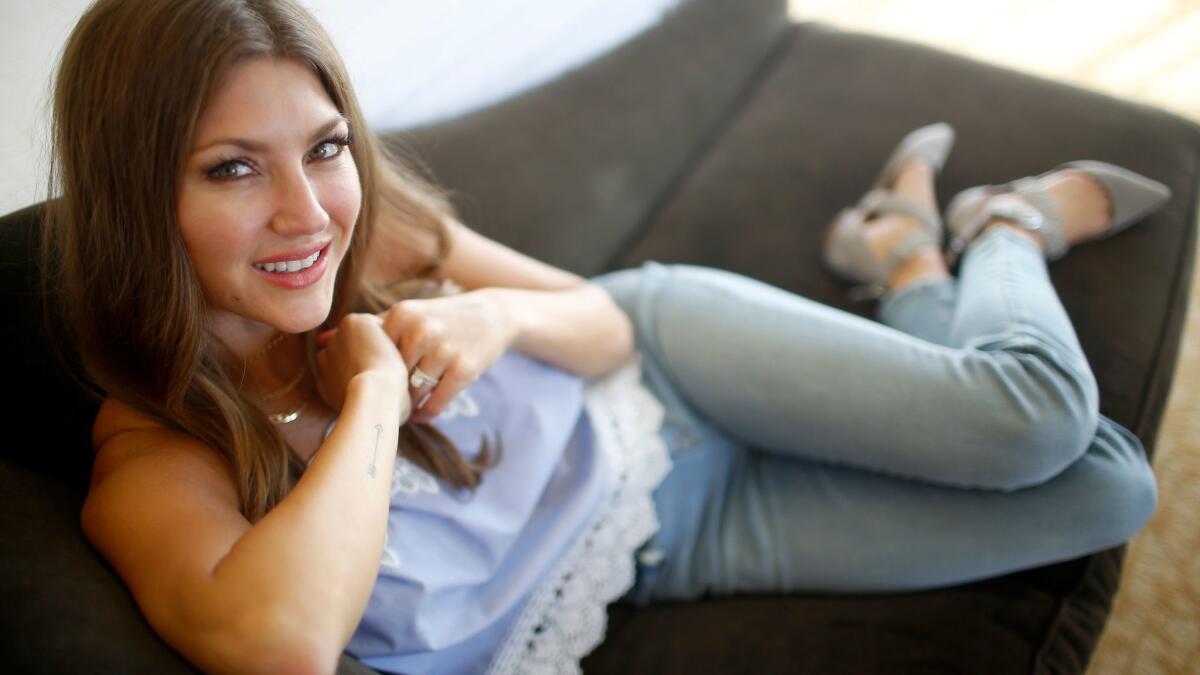
Say somebody doesn’t want to drink. There will be ... producers shadowing contestants who say, ‘I’ll have a drink with you.’
— AshLee Frazier, former “Bachelor in Paradise” contestant
So what should the role of producers be in situations where drinking and sexual activity are involved?
When contestants sign up for “Paradise,” they surrender many of their rights. A copy of a contract reviewed by The Times from Season 2 of the series required participants to acknowledge that the show can reveal information “of a personal, private, intimate, surprising, defamatory, disparaging, embarrassing or unfavorable nature that may be factual and/or fictional.” Such depictions, the contract stated, may expose contestants to “public ridicule, humiliation or condemnation.”
Further, the contract “strongly advises” contestants to interact with fellow participants “as if they were perfect strangers.” And if intimate or sexual conduct between participants occurs? The contract stated that the producer has not “requested” or “encouraged” it, so “physical, sexual, mental and emotional health and wellbeing risks” are assumed by the contestant.
After agreeing to such a thorough contract, many “Bachelor” contestants willingly shoulder the responsibility for their outlandish behavior on the show. Johnson — who says he wishes a producer had at least pointed him toward his bedroom — doesn’t blame the “Bachelor in Paradise” staff for his drunken outbursts. “They don’t like to intervene, and I don’t really think that’s their job,” he said. “They just stay back and keep their distance.”
It’s a very tricky situation ... Yes, you want to see sexual acts happen, because that’s going to create drama. It’s not like I work for a church.
— Michael Carroll, former “Bachelor” producer
Of course, the production did ultimately intervene after Johnson’s night of debauchery when he was asked to pack his bags and return to the States. The move came after Sarah Herron — the contestant Johnson insulted for her disability — gave an ultimatum to production: Either he goes or I go.
“I ran to the producers and said, morally, I can’t be here and I don’t think we’re setting a good example by keeping him in the house,” Herron recalled. “I thought it was poor form for the franchise to keep someone around that was jeopardizing our safety for ratings’ sake. And producers took it really seriously, because the next morning, Chad was sent home. It felt like a true testament to the fact that they do have our backs.”
Still, several contestants who appeared on “Paradise” told The Times that they did not feel the show had their best interest at heart during filming.
“I don’t think they honestly, genuinely care about the contestants,” said AshLee Frazier, who appeared on the first season of the spinoff. “Say somebody doesn’t want to drink. There will be handlers or producers shadowing contestants who say, ‘I’ll have a drink with you.’ We know they’re not supposed to be drinking on the job, but it kind of puts you at ease if the person working shouldn’t be drinking at all. It makes you feel a little bit safer.”
On Frazier’s season of “Paradise,” she said contestants were able to serve themselves alcohol, though a bartender was later hired to mix drinks for the cast. In the “Bachelor” mansion — a Spanish-style home in Agoura Hills where the two main shows take place — liquor is stored in the kitchen and is accessible to all cast members. If participants want a specific kind of liquor, all they have to do is request it.
A gray line
Different reality shows have varying approaches toward alcohol. On MTV’s “Are You the One?” — a dating show filled with plenty of drinking and sex of its own — every bottle of liquor that comes onto set is accounted for.
“We monitor our alcohol very closely,” said that show’s executive producer Scott Jeffress, who previously served as co-E.P. on “The Bachelor.” “We monitor the sound and know how many drinks they’ve all had, so if somebody is getting too loaded we can take them back and lay them down. It’s honestly a difficult thing to monitor, and it can be a gray area — but we err on the side of caution.”
“It is a really gray line,” agreed producer Michael Carroll, who worked on nine seasons of “The Bachelor” before moving on to shows like “Top Chef” and “America’s Next Top Model.” “It’s a very tricky situation because most of the time you’re signing up to craft some kind of interesting story — and you get that from getting close to a moral line. Yes, you want to see sexual acts happen, because that’s going to create drama. It’s not like I work for a church. I’m working to create an interesting story line for television.”
And that moral line only becomes more blurry when contestants come to think of producers as their friends. Because cast members are in what’s commonly referred to as “the bubble” on-set — no phones, Internet or reading material allowed — many come to rely on producers’ opinions during filming. Contestants spend hours answering producers’ questions in intimate sessions known as “in-the-moment” interviews, or ITMs. During ITMs, cast members open up about their deepest insecurities and hopes for the future — creating what can feel like a real bond of friendship between contestant and producer.
But if such friendships were genuine, some contestants believe, producers would step in more often to stop morally questionable behavior. At least that’s how Chris Bukowski feels. He’s appeared on five different “Bachelor” shows, including two short-lived stints on “Paradise.” When he last turned up on the show in 2015, like Johnson, he got black-out drunk — starting off with four vodka sodas before 11 a.m. Though he said he does not remember the experience, he was later told he’d stepped into a fire pit, gotten into a shouting match with a producer and told a fellow contestant he would “hook up with their mom.”
“The day after, not only is the hangover bad, but the consequences — that this is gonna be on TV — are even worse,” he said. “I still take a lot of the blame for the way I was, but I think producers hold responsibility too. They’re the ones supplying the alcohol and the place I’m sleeping and what I’m eating. It’s almost like going to a bar — at the right time, the bar owner is going to cut you off and put you in a cab. And the producers should also cut you off instead of continuing to feed you the juice.”
Follow me on Twitter @AmyKinLA
Times staff writer Christie D’Zurilla contributed to this report.
ALSO
Can this Gwyneth Paltrow-approved therapist cure writer’s block? Inside our session
‘The Beguiled’ continues a bond Kirsten Dunst and Sofia Coppola started with ‘The Virgin Suicides
Teens at the multiplex: Why some of the young are returning to theaters
More to Read
Only good movies
Get the Indie Focus newsletter, Mark Olsen's weekly guide to the world of cinema.
You may occasionally receive promotional content from the Los Angeles Times.

